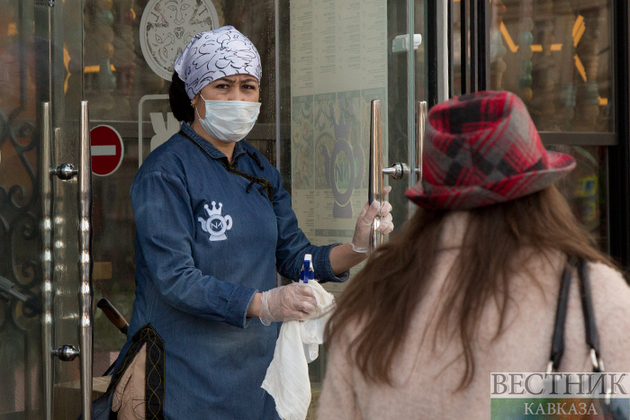The COVID-19 pandemic poses a serious health threat to even the most developed countries. Almost all countries in the world were forced to take emergency measures to prevent the spread of infection. But although the borders were hastily closed and cities were put under quarantine, the virus has spread to every continent, showing the inadequacy of optimization measures and forcing to purchase additional personal protective equipment, medical equipment, etc.
The rate of the coronavirus infection has prompted a different look at the problem of unresolved conflicts, since the pandemic has identified the most vulnerable humanitarian policy areas in conflict escalation zones.
The spread of coronavirus becomes a factor complicating the tense situation in conflict zones, which risk becoming the centers of new outbreaks, since local health systems are helpless in the face of an epidemiological threat. In areas where the work of medical services was disrupted by the war, people are deprived of the opportunity to receive modern medical care. The lack of access to clean water, medicines, diagnostic devices or tests, and most importantly qualified assistance, greatly increases the risk of infection. As a rule, there's poverty in conflict zones, and any new threats under conditions of constant tension can knock people out of the everyday rhythm, to which they can hardly adapt in extreme conditions.
Health infrastructure in conflict zones is most often limited. Medicine, which cannot develop due to the constant threat of renewed bloodshed, has fewer opportunities to identify cases. Doctors, with all the desire, cannot cure or track the further condition of patients: any territorial conflict restricts the movement of people and goods, respectively, the implementation of a full range of preventive measures is difficult.
The problem may be complicated by political factors, since the leaders of unrecognized entities tend to underestimate the extent of a possible catastrophe, while the subjects' diplomatic capabilities are limited. This can provoke an unfavorable social environment. During a pandemic, when a rigorous systematic approach to the full range of policies is required, ignorance leads to public distrust. In this case, the timely detection of new sources of infection is completely impossible.
International cooperation in the fight against the disease in escalation zones is not intense enough. Unresolved ethnopolitical and territorial conflicts exclude the exchange of experience in combating the pandemic and coordinated work at the regional level. During a pandemic, international scientific collaborations are of particular importance, which can help realize the potential for multilateral scientific and technical cooperation. Such examples of cooperation, by the way, have a beneficial effect on overcoming cultural stereotypes.
Now doctors around the world are working at their limits. Viruses do not know borders and in order to prevent COVID-19 from settling in war-ravaged regions, including in the post-Soviet space, humanitarian assistance should be no less priority than the work of diplomatic departments, even where the prospects for an early resolution of crises seem unlikely.






